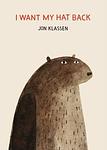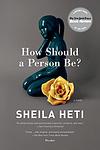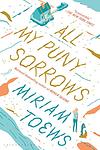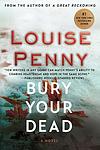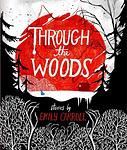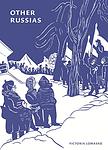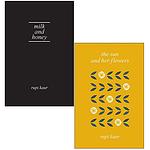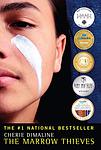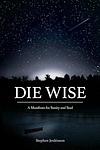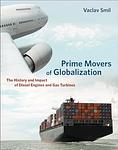The Greatest Russian, Canadian Books Since 2010
Click to learn how this list is calculated.
This list represents a comprehensive and trusted collection of the greatest books. Developed through a specialized algorithm, it brings together 300 'best of' book lists to form a definitive guide to the world's most acclaimed books. For those interested in how these books are chosen, additional details can be found on the rankings page.
Genres
Countries
Date Range
Reading Statistics
Click the button below to see how many of these books you've read!
Download
If you're interested in downloading this list as a CSV file for use in a spreadsheet application, you can easily do so by clicking the button below. Please note that to ensure a manageable file size and faster download, the CSV will include details for only the first 500 books.
Download-
1. Station Eleven by Emily St John Mandel
"Station Eleven" is a post-apocalyptic novel that revolves around the lives of several characters before and after a devastating flu pandemic wipes out most of the world's population. The narrative jumps back and forth in time, exploring the interconnectedness of the characters' lives through their shared memories and experiences. The story also follows a traveling Shakespearean theatre company as they navigate the dangers of a collapsed civilization, emphasizing the importance of art and human connection in times of crisis.
-
3. How Should a Person Be? by Sheila Heti
This novel is a semi-autobiographical exploration of friendship, art, and the question posed by the title. The protagonist, a young playwright, struggles with her art and personal life, navigating complicated relationships and seeking answers about how to live a good and meaningful life. The narrative blends elements of fiction, memoir, self-help, and philosophy, resulting in a unique and thought-provoking exploration of identity, creativity, and the human condition.
-
4. Washington Black by Esi Edugyan
"Washington Black" is a historical novel by Esi Edugyan that tells the story of a young slave named George Washington Black, who is forced to flee a plantation in Barbados with the help of his master's brother. The two embark on a journey that takes them across the globe, from the Caribbean to the Arctic, and Washington Black discovers his talent for scientific illustration. Along the way, he faces challenges and struggles with his identity as a black man in a world dominated by white men. The novel explores themes of freedom, identity, and the impact of colonialism on individuals and societies.
-
5. All My Puny Sorrows by Miriam Toews
All My Puny Sorrows is a poignant exploration of the complex relationship between two sisters, one a successful concert pianist battling severe depression and the other a struggling writer trying to support her. The narrative delves into themes of mental illness, suicide, love, and the power of familial bonds. It grapples with the moral and ethical questions surrounding assisted suicide, the struggle to understand a loved one's pain, and the lengths to which one might go to help them find peace.
-
6. Bury Your Dead by Louise Penny
"Bury Your Dead" is a gripping mystery novel that intertwines three separate storylines. Chief Inspector Armand Gamache is haunted by a previous case gone wrong while he investigates a murder in Quebec City. Simultaneously, a historian delves into the history of the city, unearthing secrets that could change its perception forever. As the two narratives unfold, the past and present collide, revealing shocking truths and forcing Gamache to confront his own demons.
-
7. Through The Woods by Emily Carroll
"Through the Woods" is a haunting collection of five eerie and atmospheric graphic stories that delve into the dark and unsettling world of fairy tales and folklore. Each tale is a standalone narrative, rich with gothic themes and chilling twists, exploring the sinister things that lurk in the forest and the horrors that await in the shadows. The book's striking and evocative illustrations complement the spine-tingling tales, creating an immersive experience that draws readers into the depths of the woods where the boundary between reality and nightmare blurs. With its blend of horror, suspense, and the supernatural, the book captivates with its exploration of fear and the unknown.
-
8. 12 Rules For Life by Jordan B. Peterson
"12 Rules for Life" by Jordan B. Peterson is a self-help book that offers practical advice on how to navigate the complexities of life and find meaning and purpose. Drawing from a wide range of disciplines, including psychology, philosophy, and biology, the author presents twelve rules that encourage readers to take responsibility for their actions, confront chaos and suffering, and strive for personal growth and fulfillment. With a blend of personal anecdotes, scientific research, and philosophical insights, this book aims to provide readers with practical tools to improve their lives and find harmony in an increasingly chaotic world.
-
9. The Mountain And The Wall by Alisa Ganieva
"The Mountain and the Wall" is a thought-provoking novel set in a fictional region of Russia, where a massive wall is being constructed to separate the Muslim population from the rest of the country. Through the eyes of various characters, the book explores the impact of this division on individuals and communities, delving into themes of identity, religion, and the struggle for freedom. As tensions rise and conflicts erupt, the story highlights the complexities of human relationships in a divided society.
-
10. Zuleikha by Guzel Yakhina
"Zuleikha" is a captivating historical novel set in 1930s Soviet Union, following the life of Zuleikha, a Tatar woman who is forcefully taken from her home and exiled to Siberia. As she struggles to adapt to the harsh conditions of the remote village, Zuleikha finds solace in her resilience and the unexpected connections she forms with her fellow exiles. Through her journey of survival, love, and self-discovery, Zuleikha's story beautifully explores themes of identity, freedom, and the indomitable human spirit.
-
11. The Rage Of Dragons by Evan Winter
The book is a gripping fantasy tale set in a world inspired by African mythology, where a caste-driven society is locked in a perpetual war with hordes of dragons. The protagonist, born into the lowest caste, discovers an extraordinary ability to summon the power of dragons and seeks to use this power to avenge the injustices done to his people and to ascend beyond his preordained station. His quest for revenge and personal transformation is fraught with battles, political intrigue, and the challenge of overcoming a rigid social hierarchy, all while the fate of the kingdom hangs in the balance.
-
12. The Natashas by Yelena Moskovich
"The Natashas" is a haunting and lyrical novel that weaves together the stories of three women: a young Russian prostitute searching for freedom, a French actress escaping her troubled past, and an American student seeking connection. Set against the backdrop of Paris, the book explores themes of identity, displacement, and the lengths people go to find themselves and their place in the world.
-
13. The Diary Of A Gulag Prison Guard 1935 6 by Ivan Chistyakov
"The Diary Of A Gulag Prison Guard 1935-6" is a chilling and harrowing memoir that provides a firsthand account of the atrocities and cruelty witnessed by Ivan Chistyakov during his time as a guard in a Soviet Gulag prison. Through his detailed entries, Chistyakov reveals the dehumanizing conditions, brutal punishments, and constant fear that both prisoners and guards endured within the oppressive Soviet regime. This haunting narrative serves as a stark reminder of the dark realities of the Gulag system and the lasting impact it had on the lives of countless individuals.
-
14. Other Russias by Victoria Lomasko
"Other Russias" is a powerful and thought-provoking graphic novel that offers an intimate and unfiltered glimpse into the lives of marginalized individuals and communities in contemporary Russia. Through her stunning illustrations and poignant interviews, Victoria Lomasko sheds light on the struggles, hopes, and resilience of diverse groups such as LGBTQ+ activists, migrant workers, political dissidents, and the forgotten voices of rural communities. This eye-opening book challenges stereotypes and provides a humanizing portrayal of those who are often overlooked or silenced in Russian society.
-
15. Witchmark by C. L. Polk
In a world where magic is both a gift and a curse, a war veteran with secret healing powers must conceal his abilities to avoid being enslaved by his own family. When a fatally poisoned patient reveals a dire conspiracy, the healer is thrust into a dangerous investigation that exposes his hidden heritage and pits him against a powerful and oppressive magical elite. As he delves deeper, he must navigate a complex web of political intrigue, forbidden romance, and family secrets, all while trying to prevent a magical war that could destroy everything he holds dear.
-
16. Milk And Honey & The Sun And Her Flowers By Rupi Kaur 2 Books Collection Set by Rupi Kaur
This collection set brings together two poignant poetry books that delve into the depths of the human experience, touching on themes of love, loss, trauma, healing, femininity, and migration. The first book is a journey through the bitter and the sweet moments of life, divided into four chapters that each deal with a different pain and yet heal a different heartache. The second book is a celebration of growth and healing, inspired by the author's past and cultural heritage, and is presented in five chapters that follow the life cycle of a flower as a metaphor for personal growth and revival. Both works are characterized by their candid prose, minimalistic style, and the raw, powerful emotions they evoke, resonating with a wide audience and marking a significant contribution to contemporary poetry.
-
17. Rock, Paper, Scissors And Other Stories by Maxim Osipov
"Rock, Paper, Scissors And Other Stories" is a collection of captivating short stories that delve into the lives of ordinary people in a small Russian town. Through these interconnected tales, the author explores themes of love, loss, and the complexities of human relationships. With a keen eye for detail and a deep understanding of the human condition, the stories in this book offer a poignant and thought-provoking glimpse into the lives of individuals navigating the challenges of modern-day Russia.
-
18. The Marrow Thieves by Cherie Dimaline
In a dystopian future where people have lost the ability to dream, leading to widespread madness, Indigenous people in North America are hunted for their bone marrow, which holds the cure for the rest of the world's dreamlessness. The story follows a young Indigenous boy and his companions as they navigate this perilous landscape, struggling to survive against the government "recruiters" who seek to harvest their marrow. As they journey through the ravaged lands, they must rely on their wits, their cultural heritage, and each other to retain their humanity against a society that seeks to take everything from them, including their dreams.
-
19. The Testaments by Margaret Atwood
This sequel to a dystopian novel set in Gilead, a totalitarian society in what was formerly part of the United States, is narrated by three female characters. The book explores the inner workings of Gilead, its politics, and its eventual downfall. It delves into the lives of the women, their struggles, and their roles in the society, providing a deeper understanding of the oppressive regime. The novel also examines themes of power, resistance, and the ways in which systems of control can be challenged and eventually dismantled.
-
20. Die Wise by Stephen Jenkinson
The book in question is a profound meditation on the necessity of acknowledging and accepting death as an intrinsic part of life. It challenges the modern denial of death and the prevalent notion of "dying well." Through a blend of storytelling, wisdom, and cultural critique, the author, who has worked extensively in palliative care, argues for a radical shift in how we perceive and approach the end of life. He advocates for a deep responsibility to dying people and a reimagined relationship with death that involves wisdom, community, and a recognition of its place in the natural order of things. The book serves as a call to awaken to the ways in which our cultural practices often leave us ill-prepared for the inevitable journey of dying, urging readers to live and die with a sense of true understanding and purpose.
-
21. Russia Is Burning: Poems Of The Great Patriotic War by Maria Bloshteyn
"Russia Is Burning: Poems Of The Great Patriotic War" is a poignant collection of poems that captures the raw emotions and experiences of the Russian people during World War II. Through powerful and vivid imagery, the author delves into the devastating impact of the war on both soldiers and civilians, painting a haunting portrait of loss, resilience, and the indomitable spirit of the Russian people in the face of unimaginable suffering.
-
22. I'm Thinking Of Ending Things by Iain Reid
This psychological thriller delves into the unsettling journey of a young woman traveling with her boyfriend to meet his parents at their secluded farm. Throughout the trip, she grapples with her doubts about the relationship and her decision to end things. However, as the visit progresses, a series of bizarre and disturbing events unfold, blurring the lines between reality and paranoia. The narrative's tension escalates towards a shocking and thought-provoking climax that challenges the reader's perception of identity, memory, and the nature of existence.
-
23. Why America Is Not A New Rome by Vaclav Smil
This book presents a detailed comparison between the United States and ancient Rome, debunking the popular notion that America is following the same trajectory as the Roman Empire towards decline and fall. The author meticulously examines various dimensions including military power, political systems, social structures, and economic dynamics to highlight the fundamental differences between the two entities. Through a rigorous analysis, it is argued that simplistic analogies between Rome and the United States overlook significant dissimilarities, particularly in terms of resilience, adaptability, and global influence, ultimately making the case that America's path is distinct from that of ancient Rome.
-
24. Prime Movers Of Globalization by Vaclav Smil
This book provides a comprehensive analysis of the technological innovations and energy systems that have been pivotal in driving globalization from the mid-19th century to the present day. It focuses on the development and impact of diesel engines, gas turbines, and the containerization of cargo, illustrating how these innovations have significantly increased the efficiency, speed, and scale of global trade and transportation. The narrative underscores the critical role of energy transitions in facilitating economic growth and interconnectivity across continents, while also considering the environmental and geopolitical implications of our reliance on fossil fuels and the urgent need for sustainable alternatives. Through a detailed examination of technological advancements, the work offers insights into the complex dynamics that have shaped the modern globalized world.
-
25. Dark Matters by Simone Browne
"Dark Matters" is a critical examination of how race and surveillance have intersected throughout history, particularly within the context of blackness. The book delves into the ways in which surveillance practices, both historical and contemporary, are rooted in racial discrimination and how these practices have served to enforce boundaries of social control. By exploring a range of topics, from the branding of slaves in the 18th century to modern-day policing and biometric technologies, the book challenges readers to consider the pervasive nature of surveillance and its disproportionate impact on black communities. Through this lens, the author reveals the deep-seated connections between visibility, race, and the monitoring of bodies in public and private spaces, urging a reevaluation of the role of surveillance in perpetuating systemic racial inequalities.
Reading Statistics
Click the button below to see how many of these books you've read!
Download
If you're interested in downloading this list as a CSV file for use in a spreadsheet application, you can easily do so by clicking the button below. Please note that to ensure a manageable file size and faster download, the CSV will include details for only the first 500 books.
Download
